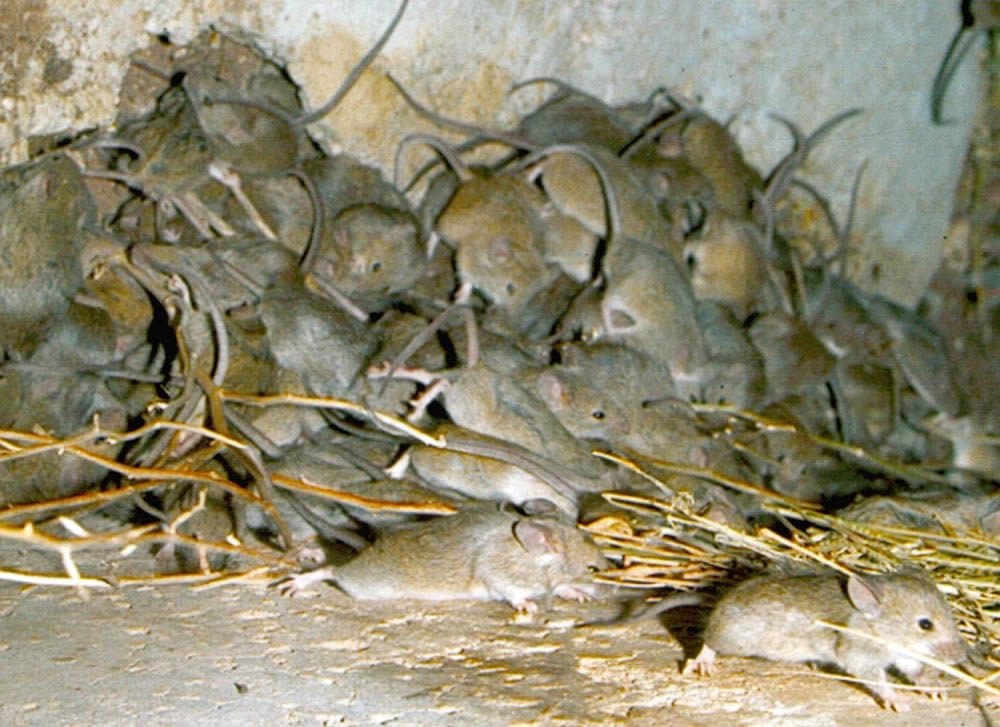When your vacation rental guest sees a mouse or an ant in your house, you’ve got a problem. The guests want the pests gone, of course, but many guests, especially those with young children or pets, will not allow an exterminator anywhere near the place. You can offer them “green” products that are safe to use around children and pets, but it may be too little, too late.
That’s why, as with most problems, an ounce of prevention is worth, in this case, maybe several pounds of cure. Even if you’ve never had a rodent or insect pest problem at your Cape Cod vacation home, we strongly recommend a treatment by a professional exterminator a few days to a week or so before your first rental guests of the season arrive.
Off-season can be peak season for pests.
Sure, and why not? Your Cape property is likely shut down for the winter. It’s nice and quiet with no one around to detect the little buggers when they move in. By the time spring rolls around and you open up the property again, you may have an infestation on your hands.
We recall one of our owners going through her cottage one fine May day, only to discover an entire family of mice living in a drawer in one of the bedside tables. Ugh.
But take heart, there are a few steps you can take yourself without a professional exterminator involved to make your Cape home off limits in the off-season for insects and rodents.
First, let’s see how to derail that army of ants.
Mary Ylisela, of A1 Exterminators, one of the Cape’s leading pest control services, offers the following:
Things You’ll Need
- 2 cups white vinegar
- Bucket
- Spray bottle
- Clean cloths
- Shallow cake pans
- Cinnamon
Instructions
- Mix 2 cups of vinegar with half a bucket of warm water. Pour some of your vinegar solution into a spray bottle.
- Soak a clean cloth in the diluted vinegar solution, then squeeze out the excess. Use the vinegar-dampened cloth to wipe down kitchen countertops, the inside and outside of kitchen cabinets and the exterior of your kitchen appliances. If ants have been spotted in any other rooms of the house, wipe down hard-surfaced and non-upholstered furniture in the affected rooms, as well as hardwood or tile floors, with the vinegar solution to repel ants.
- Mop your floor with the remaining vinegar solution. Vinegar’s smell dissipates as soon as the vinegar dries.
Read more at: https://www.a1exterminators.com/get-rid-of-house-ants-in-the-winter/
No mice would be nice.
The only good mouse we know lives in Orlando. The rest we can do without. Here are some tips from doityourself.com to help make that happen:
- Maintain a Clean Environment
Mice thrive in dirty, cluttered surroundings. In such areas, they find it easy to build nests and bring up their young. Mice reproduce very fast, and can be difficult to control if left undisturbed. In a clean environment, they will find it difficult to survive and grow in number.
2. Eliminate Food Sources
Mice can survive on very small quantities of food and water. Be sure not to store anything edible in anything a mouse can gnaw through – such as boxes of crackers, bags of dog food, etc.
3. Prohibit Entry Indoors
Mice are very nimble and flexible. They can squeeze in through openings as small as a 1/4 of an inch. It is therefore vital to ensure that your home does not have any such entry points that these creatures can use to gain entry. Areas under sinks, around pipes, attics and garages are most prone to have small openings that may go unnoticed.
4. Use Traps
Traps are quite effective in controlling a small mouse infestation. Place traps in strategic locations such as corners, dark areas and places close to areas of food storage and consumption. There are several different varieties of trapping mechanisms available, some with the ability to capture multiple mice.
5. Use Bait
A suitable material used as bait can be very helpful in enticing and trapping mice. Rodenticides or food material can be used as bait. However, when using baits, the presence of young children or pets must be taken into consideration. Avoid leaving bait material in open areas where it can be easily accessed. Dispose of old bait promptly and change bait material frequently, so that the mice do not become resistant to the bait.
6. Avoid Stacking Old Newspapers or Unused Clothes
Mice love to start new colonies in hidden places, such as newspaper stacks and clothes. If you store clothes for a long time, make sure you keep them away in air tight covers. Avoid collecting too many items that you do not use frequently.
7. Block Vents with Wire Mesh
Vents and ducts can also provide mice with an entrance to the interior of a building. Cover all vents with a strong wire mesh, so that air flow remains unaffected while keeping mice away at the same time. Make sure the mesh is rodent-proof, or else the mice can simply gnaw through it and enter anyway.
8. Use Peppermint Oil
Mice can be repelled by the scent of peppermint oil. You can use a spray made of peppermint oil and water, or dab the oil on cotton swabs and strategically place them around to repel mice.
Visit https://www.doityourself.com/stry/11-ways-to-prevent-a-mouse-infestation for more.
Do-it-yourself measures can help in the off-season, but as the rental season approaches, be sure to schedule a professional pest control treatment. It’s a small price to pay so that the guests you welcome into your house are not upset by the creepy little guests you didn’t.




